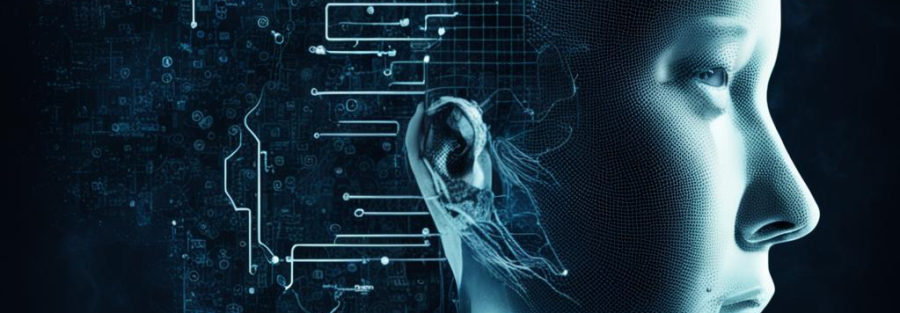Welcome to the exciting world of AI, where technology continues to revolutionize various industries at an astonishing pace. From self-driving cars to personalized virtual assistants, artificial intelligence is making its presence felt everywhere. One area that has seen a significant transformation with the help of AI is voice acting. Gone are the days when voice actors relied solely on their talent and training; now, they have access to cutting-edge tools and techniques that enhance their skills like never before.
We will explore how AI has impacted voice acting training and development, uncovering the advancements in speech synthesis and voice cloning that have reshaped this dynamic industry. We will delve into both the benefits and drawbacks of using AI in voice acting, highlighting the crucial role played by human creativity that cannot be replaced by machines. We will discuss future possibilities for AI in this field and emphasize the importance of striking a balance between technology and human expertise.
The Evolution of Voice Acting with The Help of AI Technology
The world of voice acting has undergone a significant transformation with the advent of AI technology. In the past, voice actors relied solely on their vocal abilities and training to bring characters to life. However, with the advancements in AI, there are now tools and techniques that can enhance and streamline the process.
One area where AI has made a significant impact is in speech synthesis. With sophisticated algorithms and machine learning models, AI systems can generate human-like voices that sound natural and expressive. This opens up new possibilities for voice actors, as they can now experiment with different tones, accents, and styles without needing an actual person to perform them.
Another exciting development is the concept of voice cloning. Using deep learning algorithms, AI systems can analyze existing recordings of a specific actor’s voice and create realistic imitations. This technology not only allows for accurate dubbing but also enables actors to lend their voices to multiple projects simultaneously.
AI-powered software offers real-time feedback during recording sessions. It can analyze factors like pitch accuracy or cadence consistency instantly, providing valuable insights for improvement. Voice trainers use these tools to help aspiring actors refine their skills more efficiently than ever before.
While there are undeniable advantages to incorporating AI into voice acting training & development processes, we must remember that true mastery lies in finding balance between leveraging technological innovations whilst cherishing benefitting from our own personal artistic creative abilities as well as honing our craft through traditional means such as coaching workshops. The future holds immense potential synergistic collaboration between man machine achieve even greater heights in the world of voice acting.
Advancements in Speech Synthesis and Voice Cloning for Training Purposes
Advancements in speech synthesis and voice cloning have revolutionized the way voice actors are trained and developed. With AI technology, it is now possible to generate synthetic voices that closely resemble human speech patterns and accents. This opens up a whole new world of possibilities for aspiring voice actors.
One major advantage of using AI in training is the ability to provide instant feedback and analysis. Voice cloning software can analyze recordings of a trainee’s voice and provide detailed feedback on aspects such as pronunciation, intonation, pacing, and emotion. This real-time feedback helps voice actors identify areas for improvement and refine their skills more effectively.
AI-powered speech synthesis allows trainees to practice with a wide range of scripts without relying solely on live coaches or pre-recorded material. They can experiment with different characters, styles, and genres at their own pace. This flexibility not only enhances creativity but also enables trainees to develop versatility in their performances.
It is important to note that while AI technology can assist in training, it cannot replace the essential role of human creativity in voice acting. The nuances of delivering emotions authentically or bringing unique characterizations to life still require the artistic touch that only humans possess.
Advancements in speech synthesis and voice cloning have undoubtedly enhanced the training process for budding voice actors by providing immediate feedback and expanding creative possibilities. However, striking a balance between utilizing AI technology as a tool while preserving the intrinsic value of human talent remains crucial in this ever-evolving landscape.
Pros and Cons of Using AI in Voice Acting Training and Development
AI technology has undoubtedly revolutionized various industries, including voice acting. Let’s explore the pros and cons of utilizing AI in voice acting training and development.
On the bright side, AI offers incredible advancements in speech synthesis and voice cloning. This means aspiring voice actors can train with a wide range of virtual mentors, mimicking different accents, tones, and styles. It provides an opportunity to practice diverse roles without relying solely on human coaches or expensive recording studios.
AI enables efficient feedback systems. Voice actors can receive instant evaluations on their performances, identifying areas for improvement quickly. This real-time feedback helps them enhance their skills more effectively than traditional methods.
The use of AI reduces cost barriers for aspiring talents who may not have access to expensive coaching or studio resources. With just a computer or smartphone equipped with AI software, they can engage in comprehensive vocal exercises from anywhere at any time.
Heavy reliance on AI could lead to a lack of originality within the industry. If every actor uses similar templates generated by algorithms instead of exploring their individual artistic choices and interpretations, there might be a decline in creativity and diversity among performances.
The Role of Human Creativity in Voice Acting and How It Cannot be Replaced by AI
The role of human creativity in voice acting is an essential element that cannot be replaced by AI. While AI technology has made significant advancements in speech synthesis and voice cloning, it still lacks the intuitive understanding and emotional depth that a human actor brings to a performance.
Voice acting requires more than just accurately reproducing words; it involves injecting emotion, nuance, and personality into every line. Human actors have the ability to interpret scripts, understand character motivations, and bring their own unique perspective to their performances. They can adapt their delivery based on audience reactions or director feedback, adding layers of complexity that make the characters come alive.
AI may be able to replicate voices with stunning accuracy but falls short when it comes to capturing the nuances of human expression and improvisation. Creativity is at the heart of voice acting – from creating distinct character voices to delivering lines with perfect timing and inflection. These are skills honed through years of experience, practice, and developing a deep understanding of storytelling.
While AI technology continues to advance in various industries including voice acting training and development, there will always be an irreplaceable role for human creativity. The unique perspectives, emotional depth, interpretation skills, improvisation abilities – these are all qualities that set human actors apart from machines. As we move forward in this ever-evolving field where AI plays an increasingly prominent role let us remember the importance of preserving our humanity amidst technological progress
Future Implications and Possibilities for AI in The Voice Acting Industry
The potential of AI technology within the voice acting industry is truly awe-inspiring. As we delve deeper into this realm, it becomes clear that there are numerous future implications and possibilities to explore.
One exciting prospect is the ability to create synthetic voices that closely resemble human speech patterns, emotions, and accents. With continued advancements in speech synthesis and voice cloning technologies, AI could revolutionize the way actors train their vocal abilities.
Imagine a world where aspiring voice actors can utilize AI-powered software to practice various accents or mimic iconic voices with astonishing accuracy. This would not only enhance their training experience but also open up new avenues for creativity and versatility.
AI has the potential to streamline casting processes by quickly analyzing vast databases of audio samples and finding voices that perfectly match specific character requirements. This efficiency could save time and resources while ensuring the best possible fit for any given project.
Although there are incredible possibilities for integrating AI into voice acting training and development processes, striking a balance between technological innovations and human artistry will be vital moving forward. By combining these forces harmoniously rather than replacing one another entirely, the industry can continue pushing boundaries while preserving what makes voice acting so special – the power of genuine emotion conveyed through skillful interpretation!
The importance of a balance between AI technology and human
The importance of a balance between AI technology and human involvement cannot be emphasized enough in the field of voice acting training and development. While AI has undoubtedly revolutionized the industry, offering new possibilities for speech synthesis and voice cloning, it is crucial to remember that human creativity remains irreplaceable.
AI has certainly brought about significant advancements in voice acting training, allowing actors to practice and refine their skills with virtual coaches and simulated scenarios. The ability to create realistic voices through speech synthesis and voice cloning techniques also opens up doors for greater versatility in character portrayal.
As we move forward into an increasingly technologically-driven world, there is no doubt that AI will continue to play a significant role in shaping various industries. In voice acting specifically, embracing its potential without losing sight of our own innate creative abilities will ensure continued growth and innovation.
Let us celebrate the advancements made possible by AI while reminding ourselves that behind every compelling performance lies a talented actor who brings life to characters through their passion, skillset, and personal touch.


